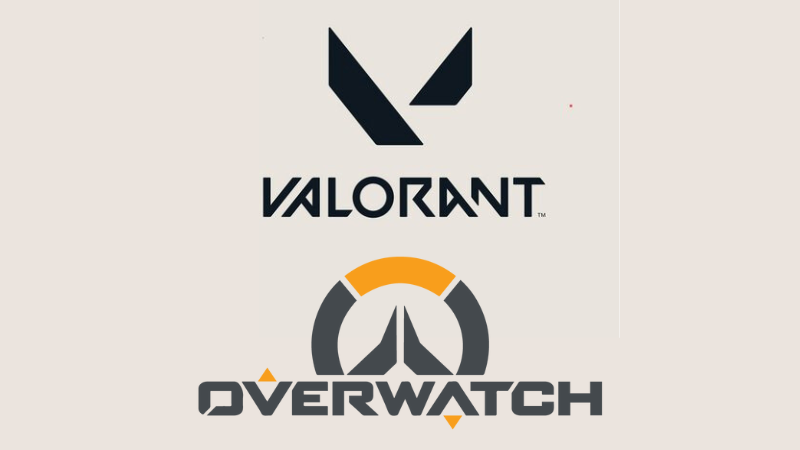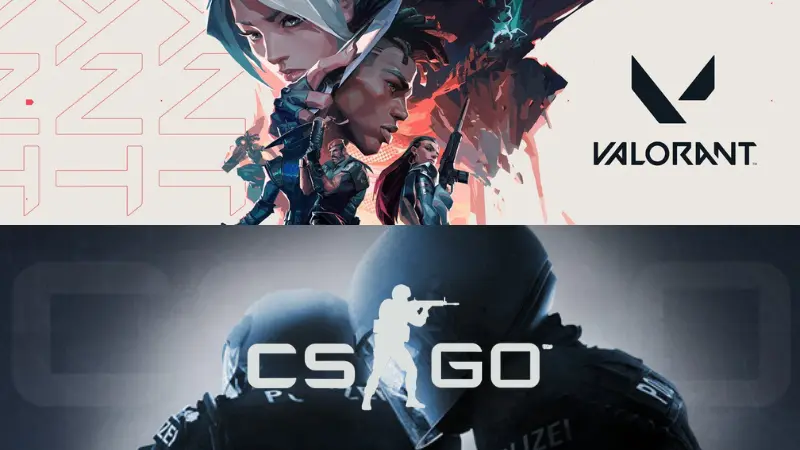

Valorant Vs. Overwatch
Valorant and Overwatch are both team-based first-person shooters, but they differ significantly in gameplay style, mechanics, and competitive focus. Here's a comparison:
Gameplay Style: Valorant is a tactical shooter where precision, positioning, and strategic play are key. Players die quickly, and gunplay is the primary way to win. Overwatch is a hero shooter with fast-paced, ability-heavy gameplay where movement, team synergy, and ultimates play a bigger role than precise aiming alone.
Characters and Abilities: Both games have unique characters (called Agents in Valorant and Heroes in Overwatch) with special abilities. In Valorant, abilities support gunplay — they help with vision, movement, or map control, but rarely kill on their own. In Overwatch, abilities and ultimates are often the main way to secure kills or turn the tide of a match.
Objective Structure: Valorant is round-based with a bomb plant/defuse format, where one team attacks and the other defends. Overwatch uses objective-based modes like payload escort or control points, where both teams are constantly pushing or defending.
Time-to-Kill (TTK): Valorant has a very low TTK — one shot to the head can instantly kill. Overwatch has a higher TTK, with many characters having large health pools, shields, and healing, making fights longer and more ability-driven.
Team Composition: Valorant teams are made up of five agents chosen independently, with no enforced roles. In Overwatch, team composition is more role-focused (damage, tank, support), and good team synergy is crucial.
Visual Style: Valorant has a more grounded, minimal art style designed for clarity and visibility in competitive play. Overwatch features colorful, detailed graphics with a more cartoon-like and cinematic presentation.
Competitive Scene: Valorant focuses heavily on competitive balance and esports, with ranked play and frequent updates tailored for pros. Overwatch also has a strong competitive scene but leans more into team synergy and spectacle through the Overwatch League.
In short, Valorant is for players who enjoy slow, strategic gunplay with a focus on aim and positioning, while Overwatch is for those who prefer fast, ability-driven action with lots of movement and team-based coordination.

Valorant Vs. CS:GO
Valorant and CS:GO are both 5v5 tactical first-person shooters with a round-based format where one team attacks and the other defends, typically aiming to plant or defuse a bomb. However, they differ in key areas that affect gameplay, strategy, and style.
Gunplay in both games is central, with low time-to-kill and a strong focus on accuracy, spray control, and positioning. CS:GO relies entirely on raw gun skill and traditional utility like smokes, flashbangs, and molotovs. Valorant includes similar weapons and utility concepts, but each character (called an Agent) has unique abilities that add an extra layer of strategy. These abilities can include walls, teleportation, recon tools, or healing, which makes Valorant more varied and less predictable from round to round.
Map design in CS:GO is more grounded and simple, built around key choke points and balanced sightlines, allowing players to rely purely on utility and positioning. Valorant’s maps are also tactical, but include elements designed around agent abilities—such as breakable doors, vertical spaces, or teleporters—which adds more variety and chaos to encounters.
In terms of movement and pace, CS:GO is slower and stricter. Jumping or moving while shooting drastically reduces accuracy. Valorant follows the same principle but introduces agents with mobility-enhancing abilities (like dashes or teleports), allowing for more creative plays and aggressive pushes.
Visually, Valorant has a stylized, colorful look designed for clarity and accessibility, while CS:GO maintains a realistic, gritty tone. This reflects their overall feel—Valorant is more modern and flashy, while CS:GO is minimal and focused.
On the competitive side, both have strong esports scenes, but CS:GO has a longer history and deeper roots in professional play. Valorant, being newer, has quickly grown in popularity with heavy support from Riot Games, including international leagues and tournaments.
In summary, Valorant builds on CS:GO’s tactical foundation by adding character abilities and a more modern design, while CS:GO offers a purer, more traditional competitive FPS experience. The choice between them often comes down to whether a player prefers classic skill-based gameplay or a mix of shooting and hero-based tactics.